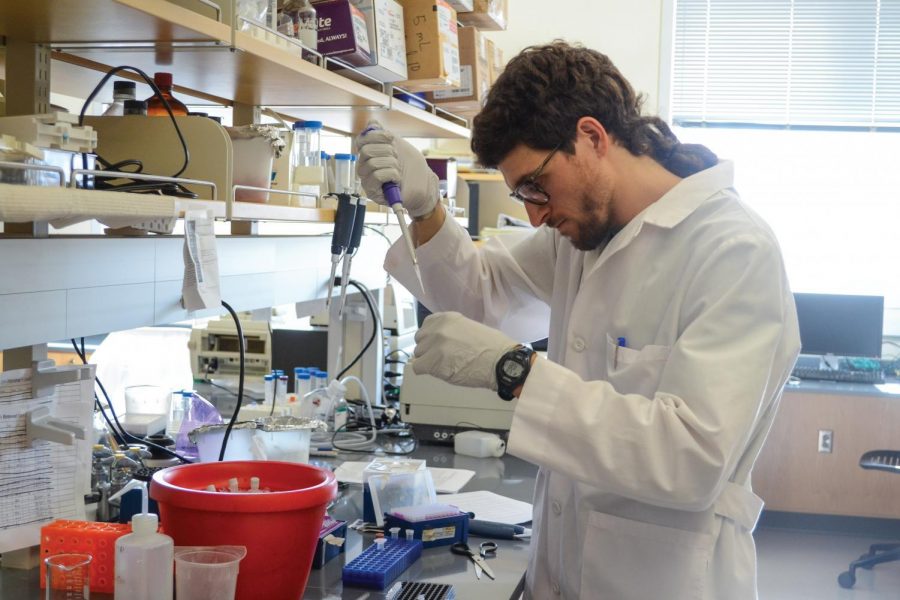Vitamin D and xanthohumol found to increase weight loss
November 17, 2015
Correction: Quote by Prof Adrian Gombart changed to say “certain bacteria”
In an effort to combat obesity, Oregon State University was granted $2.64 million from the National Institutes of Health to find a solution.
According to Adrian Gombart, associate professor in the department of biochemistry and biophysics at Oregon State University, vitamin D and xanthohumol may be able to reduce weight gain.
“I think that this will make a significant contribution to help people with obesity. It will also bring a new perspective to science. We are laying the base work for what could be a solution for obesity,” said Claudia Maier, a chemistry professor at OSU.
Gombart and researchers have been testing the vitamin D and xanthohumol on mice, by placing it in the mices’ food. Different doses are given to different mice in order to find the healthiest dose.
“I believe that vitamin D and xanthohumol are working successfully because they are changing the gut composition. There are so many bacterial species in your gut, and we want to figure out which bacterias are important, and which ones are not,” Gombart said. “We have germ-free mice, and we are planning to inject them with certain bacteria to figure out what ones are important.”
After the ideal gut composition and the correct doses are found, and the relevant questions have been answered, this could be an incredible aid for the obesity epidemic in the United States, according to Gombart.
“After we have done the research that we need on animals, we would love to try it on a human. We hope that it can be developed into a treatment one day,” said Gombart.
According to Maier and Gombart, they estimate it will be five years before the research is advanced enough to try this on a human.
Liping Yang, faculty research assistant at OSU, aids Maier in mice metabolics. Lak studies the gut composition of the mice, and how differing doses of xanthohumol and vitamin D impact the metabolism of the mice.
“I am very excited for this project; it’s a brilliant idea. The two compounds have shown to activate nuclear receptors, which may be what is changing the gut composition,” Yang said.
























































































































